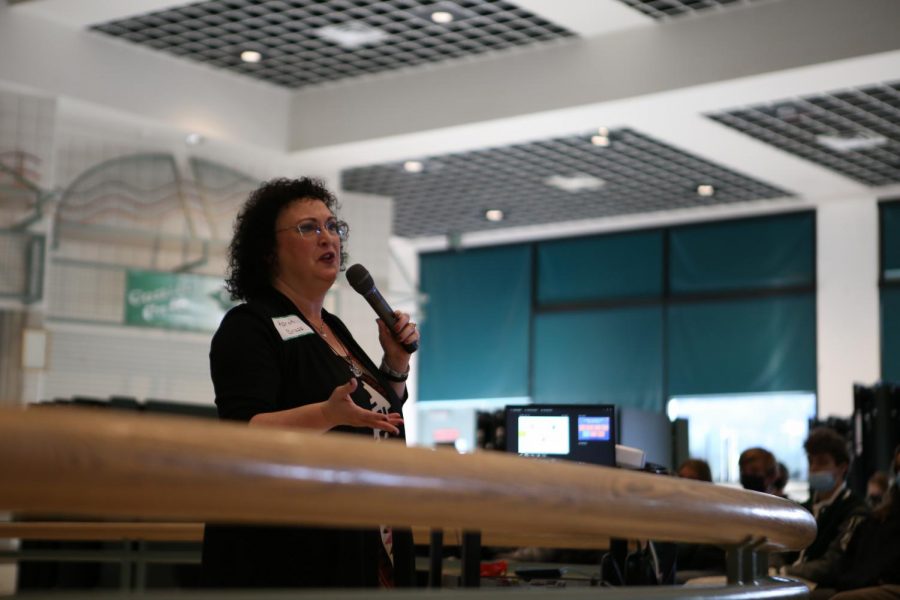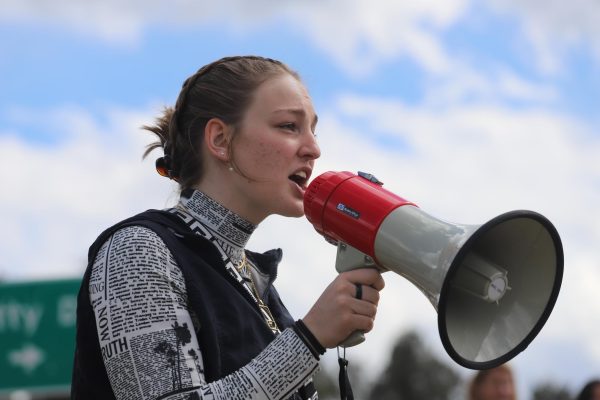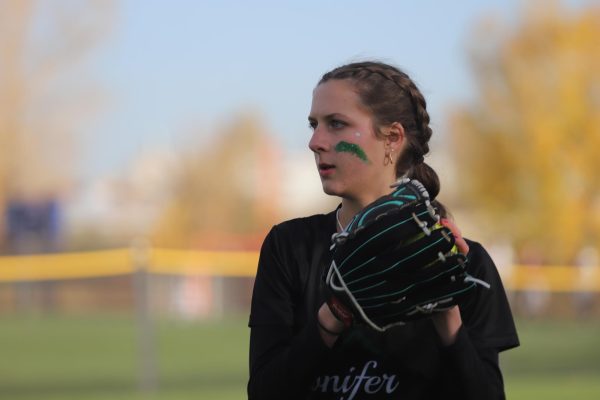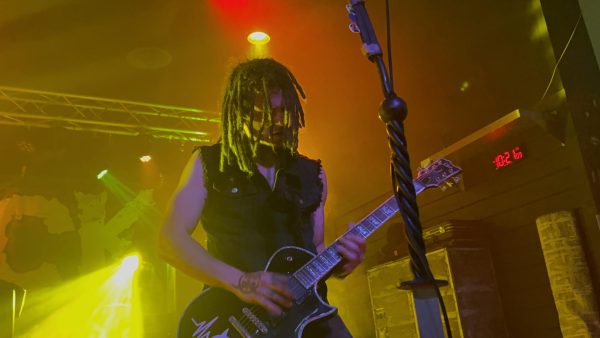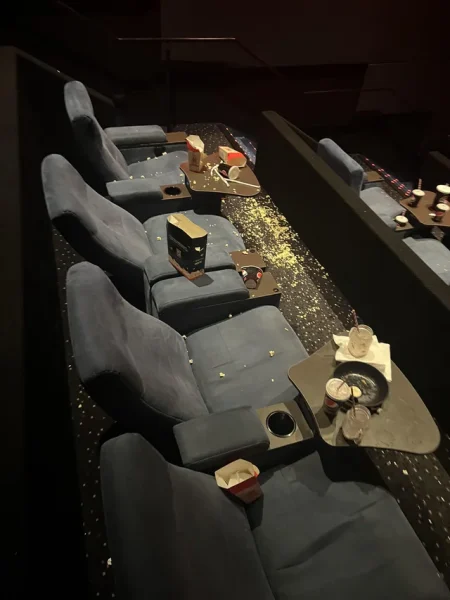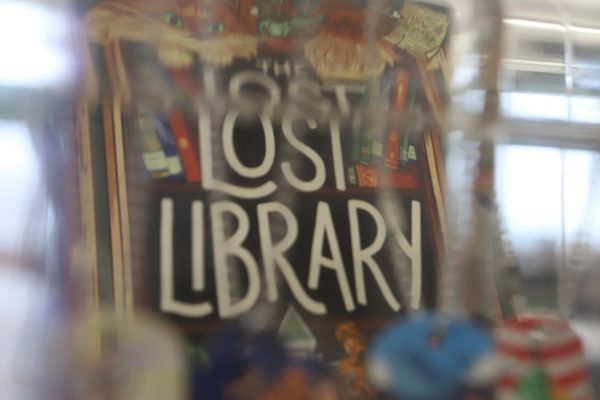Daughter of Holocaust Survivor Speaks During Seminar
Karen Brass spoke to Conifer High School students about the importance of being an upstander.
Brass’ seminar lasted from 7:45 to 9 and offered extra credit in social studies classes to those that choose to attend.
“I remember the strength, the determination and the kindness of the people who did not give in to Nazi intimidation,” David Zauder said.
Zauder was a musician, a veteran, a standupster, and a Holocaust survivor, but to Karen Z. Brass, David Zauder was a father. Zauder died 8 years ago and on Thursday, December 9th students at Conifer High School were offered the opportunity to hear his story from Brass and learn how to become standupsters for the community at large.
A standupster is the opposite of a bystander. A standupster is someone who expresses their beliefs and protects others even though they might be going against the herd or face consequences. In the context of the Nazi regime, those consequences were often the concentration camps.
At the beginning of her talk Brass established how scale affects how people look at the Holocaust. When looking at six million people it is hard to empathize or connect but when it is just one story then it becomes much easier to understand.
“If I tell you the story of one, maybe, just maybe it will make you feel more,” Brass said.
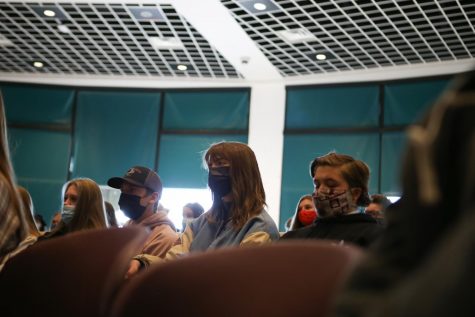
Zauder lived in the Polish town of Karkow, and when he was between the ages of 8 and 10 Nazi forces moved into his village. It was soon after when he and his family were taken into the murderous ghetto. To survive, he would escape from the ghetto to go to a local butcher that his father had hired to supply them with meat. He was never caught.
Both of Zauder’s parents were murdered while he was living in the Krakow Ghetto. Brass’ grandfather was shot by a German soldier while performing his duties ensuring the other residents of the ghettos were not out after curfew. Brass’ grandmother was killed while on a ship the passengers were told was heading for a concentration camp. Wisely, Zauder’s mother had told him to stand in another line, effectively saving his life.
Later when Zauder was given an identifying tattoo he squeezed out some of the ink changing his number from B14598 to B14593. When the number ending with 8 was called to be killed he did not go forward, again his life was saved. Soon after that he was sent to Auschwitz, and he was separated from his family. Towards the end of the war, he was on a death march that lasted from December to February. One day he grew too weak and fell to the ground, and the man who picked him up was his own brother wrapped in a blanket.
After the liberation of the concentration camps, Zauder went to America where he was placed in the 5th grade at 15 years old. He was expelled from the public school after beating up some bullies on the playground and continued his education at the New York Military Academy. He got in on a full ride for his excellent playing of the trumpet. This talent would carry him through the military for five years at West Point, all the way to the Cleveland Orchestra where he played both trumpet and clarinet.
When Brass finished telling his story she explained how events like the Holocaust and stories like her father’s could not have happened without bystanders.
“It didn’t start with gas chambers, it started with desensitization,” Brass said.
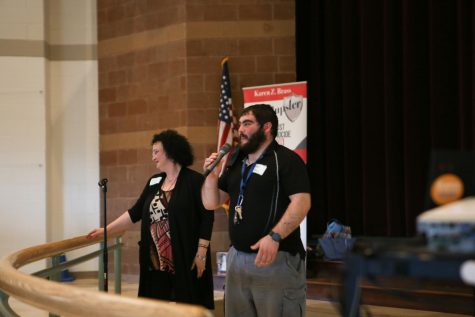
She made sure to remind those in attendance that even the small secluded community of Conifer saw its own hate and ignorance.
“I want you to stand up and say no more,” Brass said.
She challenged the students at Conifer to do what was right and abstain from what was wrong. Brass said that following a moral compass was not easy, otherwise more people would do it. She brought up a quote by Susan Sontag, “10 percent of any population is cruel, no matter what, and 10 percent is merciful, no matter what, and the remaining 80 percent can be moved in either direction.” Brass went on to question where those in the audience fit in. Were they the 10% cruel, were they the merciful upstanders, or were they bystanders who waited around for someone to decide for them?
“I need to know that my father survived the Holocaust so that we can have a better group of humans,” Brass said.
